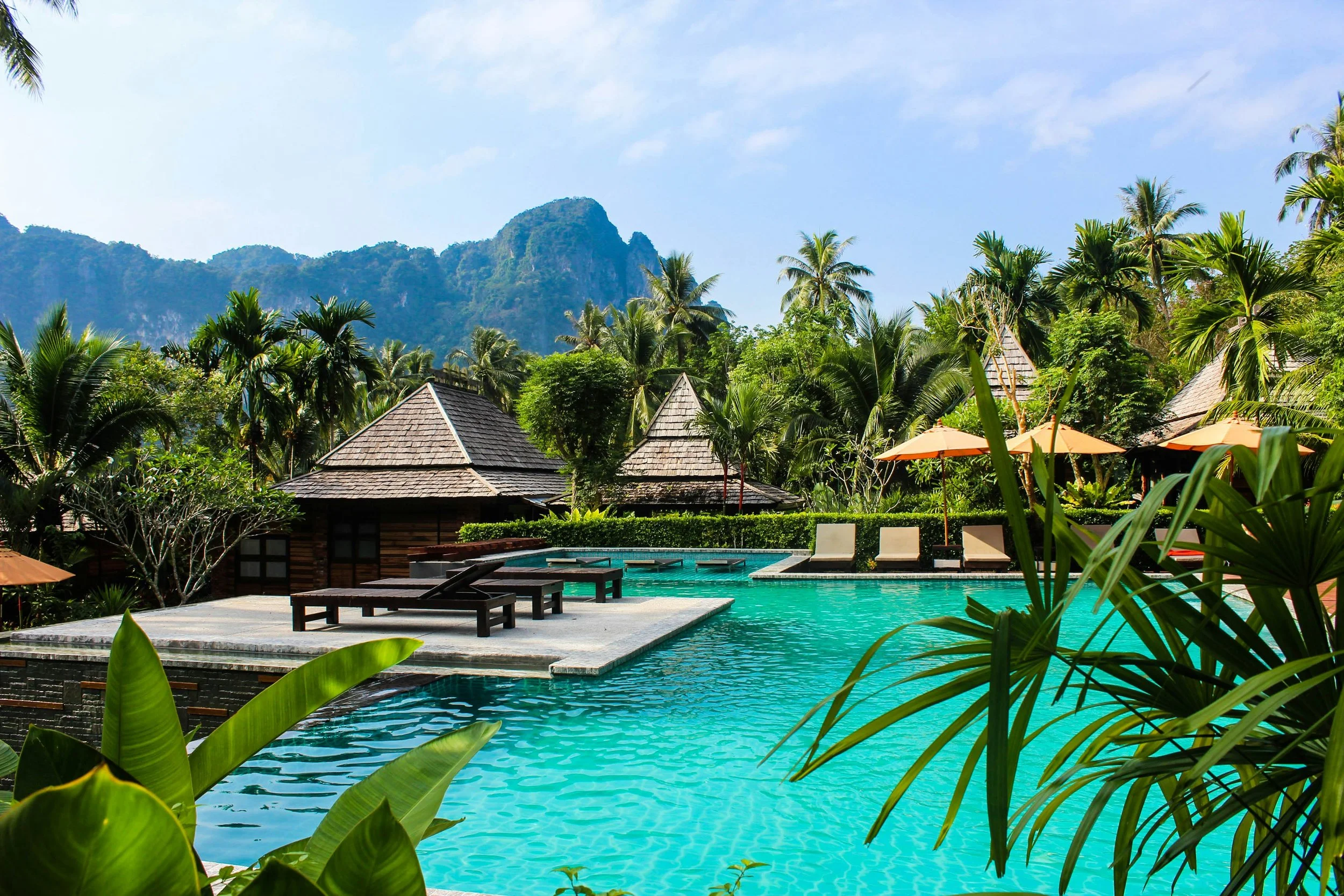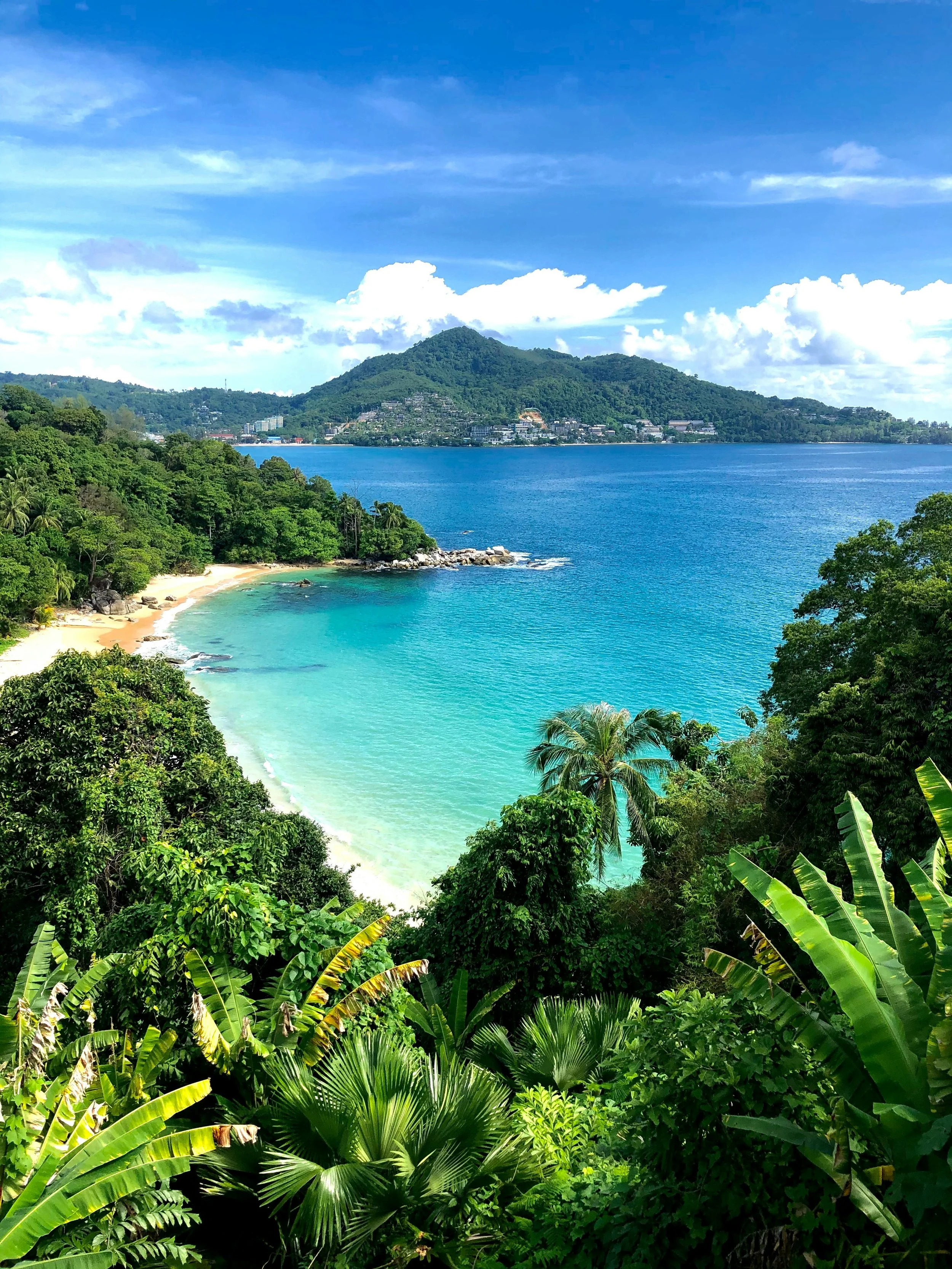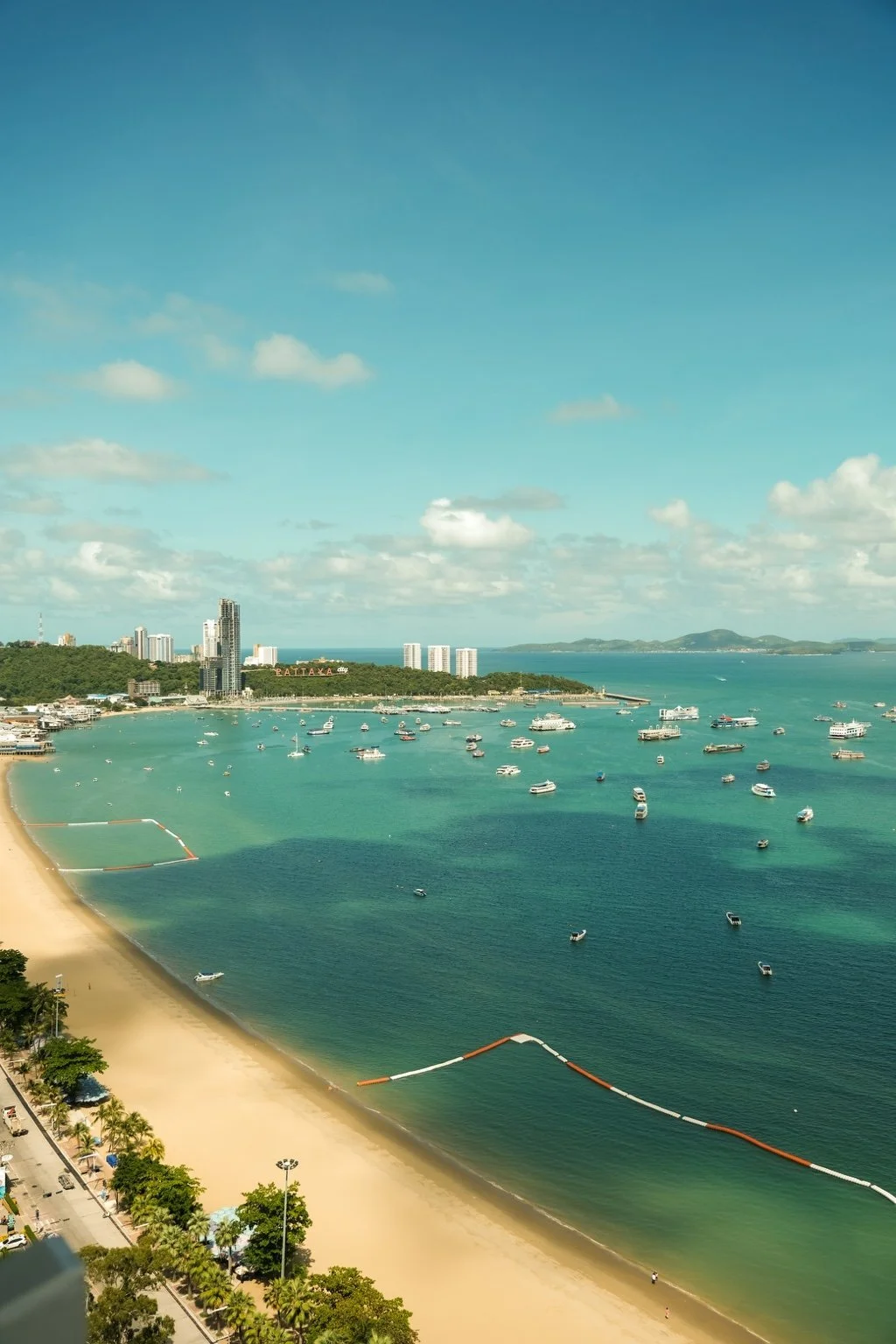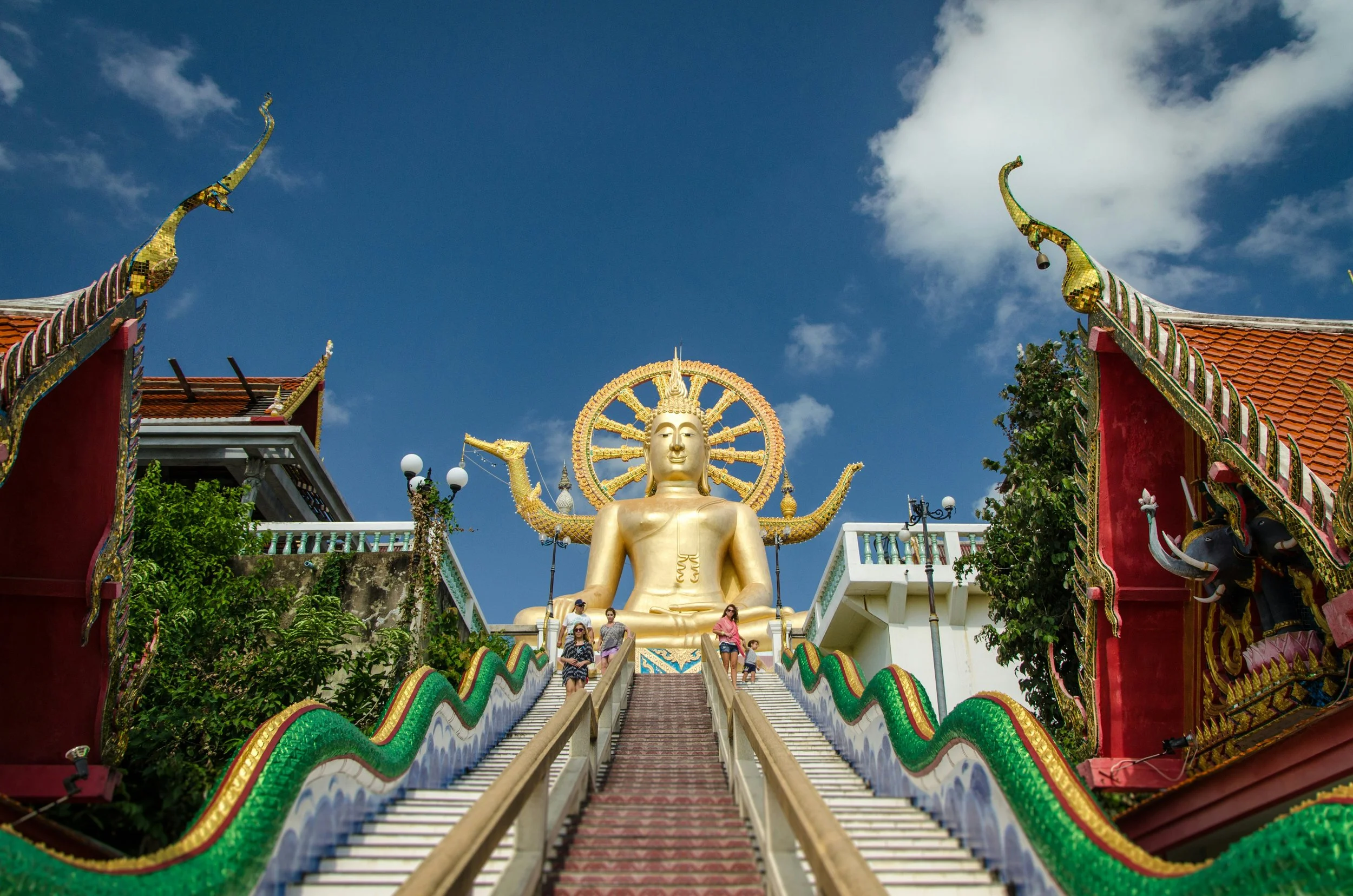
Luxury Property for Sale Across Thailand
From Bangkok to the islands, explore curated condos, villas, and investment properties with expert guidance for foreign buyers.
Thailand remains one of Southeast Asia’s most popular destinations for international buyers and for good reason. Foreigners can legally own freehold condominiums, and the market offers everything from affordable city apartments in Bangkok to resort-style properties in Phuket, Pattaya, Koh Samui, Koh Change and Chiang Mai.
While land ownership isn’t permitted and visa options are limited, Thailand’s low entry prices, excellent quality of life, and high tourism demand continue to attract investors looking for lifestyle value or short-term rental income.
Thailand Property Investment & Lifestyle
Why consider Thailand?
Foreigners can buy freehold condominiums
Non-citizens can legally own condo units in Thailand under freehold title, as long as foreign ownership within the building doesn’t exceed 49%.
Affordable entry points
Well-designed condos in Bangkok or top resort areas often start from just £50,000, making Thailand highly accessible for first-time overseas buyers.
Tourism-led rental income
Thailand ranks among the world’s top tourist destinations. Properties in prime locations offer strong rental returns, especially for short- and mid-term stays.
Excellent lifestyle infrastructure
With quality healthcare, fast internet, global air connectivity, and a vibrant food and cultural scene, Thailand appeals to expats, digital nomads, and lifestyle buyers, whether part-time or full-time residents.
Thailand’s Prime Property Markets
We curate property opportunities in Thailand’s strongest lifestyle and investment markets, including Bangkok, Phuket and emerging coastal destinations.
Thailand’s flagship island for lifestyle-led investment. Properties in Patong, Kamala, and Surin are well-suited to short-term letting & seasonal personal use.
The capital offers urban convenience & consistent rental demand. Buyers typically target established neighbourhoods near BTS/MRT lines for stable mid- to long-term tenants.
A well-established coastal city with affordable prices, a growing infrastructure base, and solid rental activity driven by local tourism and expats.
Known for its charm and lower cost of living, Chiang Mai is increasingly popular with digital nomads and retirees looking for a slower pace and strong community feel.
A more laid-back, upscale island offering resort-style villas and beachfront condos. Best suited for buyers prioritising lifestyle use or luxury holiday lets.

Ready to Explore Thai Property Opportunities?
Speak to our team about available units, upcoming developments, and viewing trips.
FAQs for Foreign Buyers in Thailand
-
Thailand remains one of Southeast Asia’s most popular real estate markets for overseas buyers. Investors are drawn by strong tourism fundamentals, rental demand in key areas like Bangkok and Phuket, and relatively low entry prices compared to Singapore or Malaysia. Yields of 5–8% are achievable in high-demand areas, particularly with short-term holiday lets. However, returns depend on market timing, location, and quality of property management.
-
Key risks include:
Ownership laws: Foreigners can’t directly own land, so villas require leasehold or company structures.
Short-term rental restrictions: These vary by location and can affect income strategies.
Developer reliability: Not all off-plan projects complete on time or at expected quality, research track records carefully.
Currency fluctuations: The Thai Baht can impact returns when repatriating funds.
Liquidity: Properties may take longer to resell, especially outside of major hubs.
Working with a trusted advisor and choosing high-demand areas reduces exposure to these risks.
-
Foreigners cannot legally own land in Thailand, but they can own condominium units outright, as long as foreign ownership in the building does not exceed 49%. For landed properties (e.g. villas), long-term leasehold structures (typically 30 years, renewable) or setting up a Thai company are common alternatives.
-
Financing options are limited. Thai banks rarely lend to foreigners unless they have local income or a work permit. Some developers offer private financing or payment plans, but most purchases are cash-based.
-
Bangkok for urban investment, Phuket and Koh Samui for lifestyle or holiday lets, Chiang Mai for long stays and retirees, and Pattaya for affordable coastal living. Koh Chang and lesser-known islands are gaining traction with early investors.
-
Foreign property buyers pay typical costs on transfer:
Transfer fee (2% of registered price)
Stamp duty (0.5%) or specific business tax (3.3%, depending on seller type)
Withholding tax (~1% of appraised price)
Lease registration costs (~1.1% of lease value)
-
Rental rules vary by location and building. While long-term rentals are generally allowed, shorter-term lets (under 30 days) sometimes require special licenses. Always review condo regulations or villa zoning before committing.
-
Off-plan purchases can be secure with the right precautions. Stick with developers who have a proven delivery record, review standard agreements, and ensure escrow arrangements shield your funds until key construction milestones are met.
-
No, owning property in Thailand does not automatically grant a visa or residency. However, there are visa options available for long-term stays that may suit property investors or second-home buyers:
Tourist Visa: Typically valid for 60 days with the option to extend for 30 more. Not suitable for long-term living.
Retirement Visa (Non-Immigrant O or OA): For those aged 50+, this allows 1-year stays (renewable) if you meet financial criteria, like having 800,000 THB (approx £17,000) in a Thai bank.
Thailand Elite Visa: A premium, long-term visa (5–20 years) that includes concierge services. Requires a one-time fee starting at 600,000 THB (approx £13,000)—popular with foreign property owners.
Business/Work Visa: Requires local employment or business ownership, which some investors pursue through local partnerships.
Short-term ownership doesn’t support visa privileges, but planning a long-term stay around the Elite Visa or retirement visa is common among expat buyers.No, owning property in Thailand doesn’t provide any visa rights. However, there are other long-stay options such as the Elite Visa, Retirement Visa, and 10-Year Investment Visa that can support overseas buyers and frequent visitors.
-
There is no legal minimum price to buy a condo, but foreign units are typically mid-to high-end to attract rental demand. You’ll find investment-grade condos in Bangkok starting from around £50,000–£100,000.
Still have questions?
Reach out to our team at info@alestriaproperty.com or complete the form to request a brochure, enquire about viewing tours, or ask us a general question. No hard sell, no obligation.






